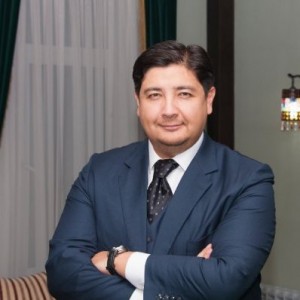ALMATY – Gakku TV (gakku means “swan” in Kazakh), a new channel that exclusively broadcasts Kazakh singers, has gained great popularity since it was launched in September 2014.
One of the channel’s first broadcasts was a concert where 200 musicians participated in a seven-hour show.
In a November interview with the KazTag news agency, the head of Gakku Media Sanzhar Mustafin noted a link between patriotism and music. “One of the most topical and honest feelings a person has is the feeling of patriotism, a simple and strong derivative of love for one’s home, family, friends and kindred. Art created while taking this into account becomes very popular and needed since it is as if it was created by someone next door to you,” he said.
Mustafin added his project is driven by the desire to promote local musicians.
“We really wish to create good quality domestic content. Especially now, when the youth want to listen to the Kazakhstani singers,” he explained.
The desire seems to stem from the feeling that local musicians are often underrated just because they’re local.
“Such singers were asked to pay for screen time on other channels, while we offer the same service for no charge,” said Mustafin.
The whole idea of Gakku TV is to promote Kazakh musicians and level the playing field with foreign ones.
“We, as broadcasters of quality content, will be more than happy to help our musicians with promotion,” he said.
“However, it is important to note that popular Kazakh music will probably be of little or no interest to, say, a Western listener,” Mustafin said when asked whether Gakku’s songs, if translated in English, could reach the success of ABBA, Modern Talking or Gorky Park.
Mustafin wants to concentrate on promoting the musicians in post-Soviet countries like Kyrgyzstan or Uzbekistan. The nations share a lot of history and background with Kazakhstan, which he noted are important parts of the songs.
To make Gakku available to the widest audience, the channel censors content to prevent profanities and other content unacceptable for TV from reaching the air. Regarding the admissions, Mustafin mentioned a peculiar ritual.
“Our whole editorial office gets together and browses the Kazakh internet and video portals daily in search of new, interesting and perspective material. This method has allowed us to form playlists very different from that of other channels,” he explained. This also seems to be a good way to become aware of those who are too shy to send a request to their admissions board but still post their music online.
“Popularity on the Internet doesn’t guarantee a pass into our channel, differences in the audiences, the quality of the videos and censorship being the main reasons. Regarding the admissions committee, their personal details, even names, cannot be disclosed to avoid the chance of them being put under pressure.”
Regarding Gakku Dausy (“Voice of the Swan”), the seven-hour concert/festival, Mustafin noted “we gathered the best 57 bands on the same stage on that day and 75 songs were played … we started the concert in the daytime and finished at night.”
To measure the impact of the concert, Mustafin has turned to the Internet, particularly social networks. “If you go through the hashtags, you will see how many appreciative people have shared photos and videos of the concert on Instagram.”
Overall, the project has rapidly risen in popularity in contrast to statements from years back that Kazakhstan’s music industry was failing. There are plans to take the most-promising musicians to the international level, which would present a good opportunity for business as well as boosting the patriotism of Kazakh citizens. Such an action would be a big achievement and likely receive positive feedback from fans of Kazakh popular music.


